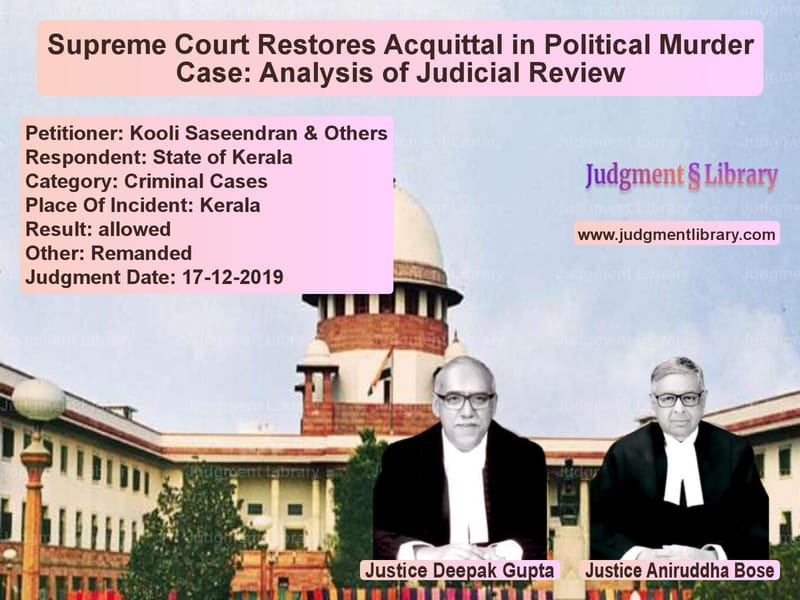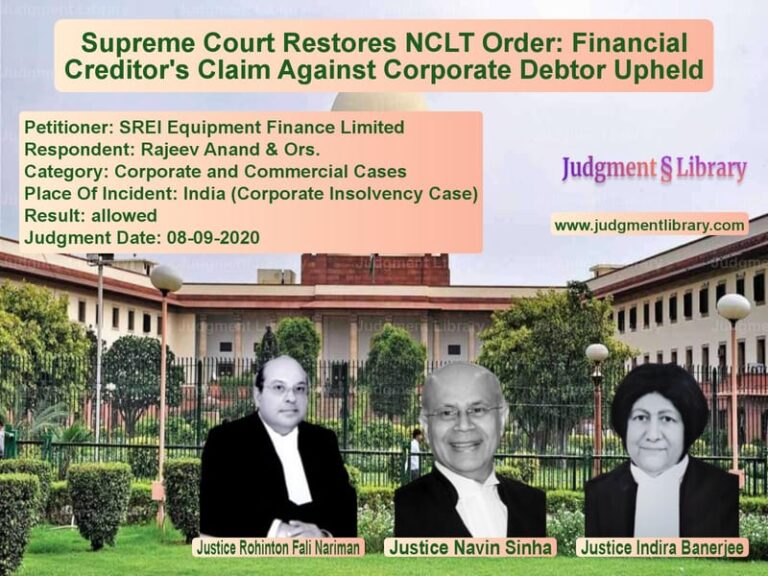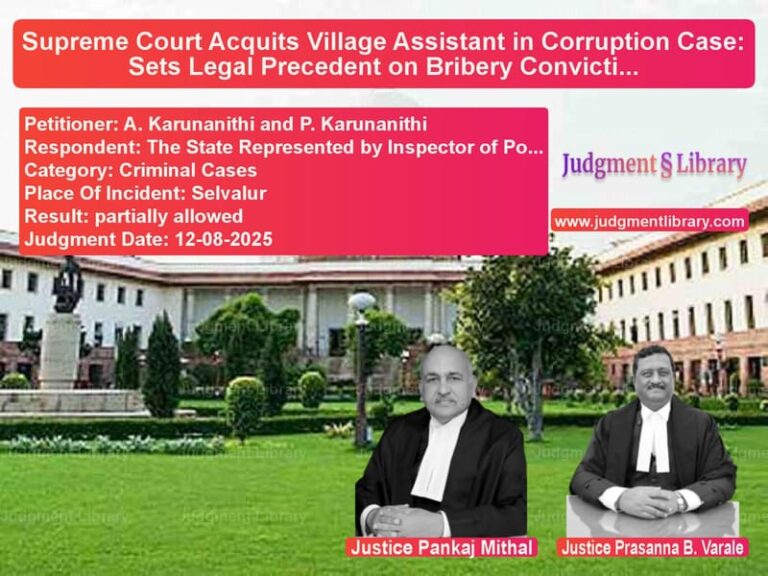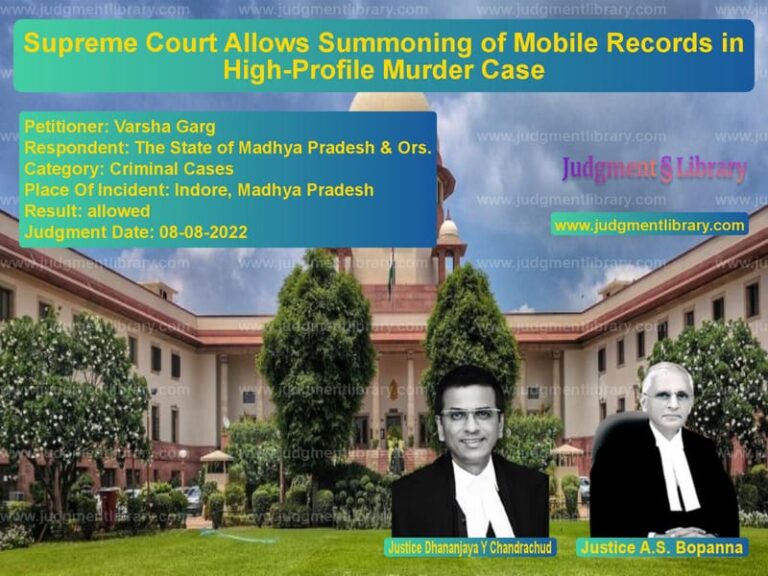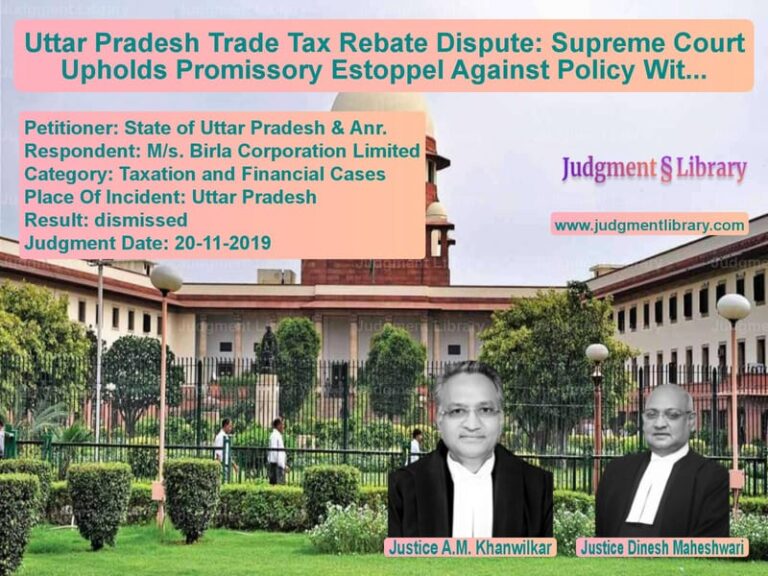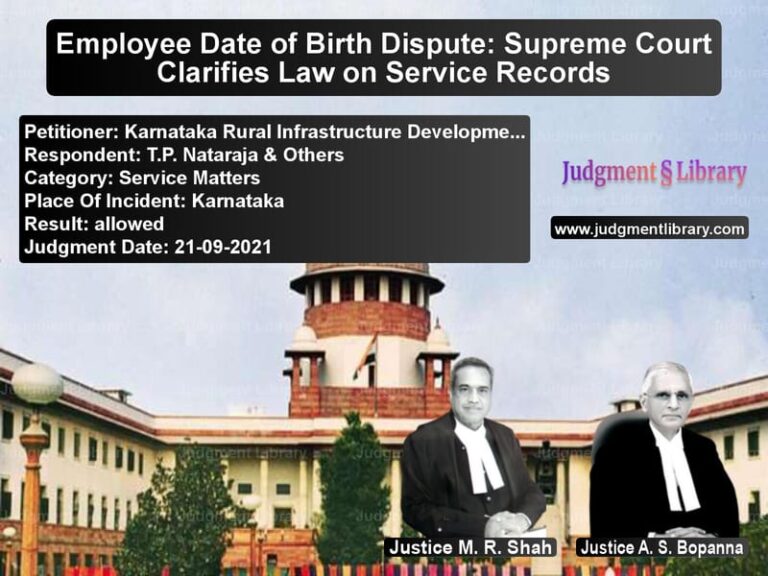Supreme Court Restores Acquittal in Political Murder Case: Analysis of Judicial Review
The case of Kooli Saseendran & Others v. State of Kerala is a significant ruling in the realm of criminal law, focusing on the principles of judicial review in criminal acquittals. The Supreme Court of India, in its judgment dated December 17, 2019, set aside the Kerala High Court’s order that had reversed the acquittal of the accused and remanded the case for a retrial.
The case involved the political murder of Parayil Sasi, allegedly carried out by members of the Communist Party of India (Marxist) due to their rivalry with the victim, a Rashtriya Swayamsevak Sangh (RSS) activist. The trial court had acquitted the accused due to inconsistencies in witness testimonies and procedural lapses. However, the High Court reversed the acquittal and ordered a retrial, a decision that was ultimately overturned by the Supreme Court.
Background of the Case
On October 12, 1999, at around 8:30 AM, a group of accused individuals, along with others, allegedly formed an unlawful assembly and attacked the victim, Parayil Sasi, with deadly weapons, including country-made bombs. The attack led to the victim’s death, and a First Information Report (FIR) was filed by a witness, PW-1.
The police charged the accused under Sections 143, 147, 148, 302 read with Section 149 of the Indian Penal Code (IPC) and Sections 3 and 5 of the Explosive Substances Act, 1908. The trial court acquitted the accused due to inconsistencies in the prosecution’s case, but the High Court reversed this acquittal and remanded the matter for a fresh trial.
Arguments of the Petitioner (Accused)
The accused challenged the High Court’s decision on several grounds:
- The trial court’s decision was based on detailed analysis of evidence, and there was no justification for reversing the acquittal.
- The prosecution witnesses (PW-1 and PW-3) were politically motivated and had criminal cases against them, affecting their credibility.
- The High Court failed to discuss the contradictions in the evidence and instead ordered a retrial without strong reasons.
- The principles governing appeals against acquittals were not properly applied by the High Court.
Arguments of the Respondent (State of Kerala)
The prosecution argued that:
- The High Court had the authority to review acquittals if there were procedural errors or misappreciation of evidence.
- The accused were named in the FIR, and there was credible testimony linking them to the crime.
- The trial court failed to consider relevant material while acquitting the accused.
- A retrial was necessary to ensure justice for the victim and to thoroughly examine the case.
Supreme Court’s Analysis
The Supreme Court examined whether the High Court was justified in reversing the acquittal. The Court reiterated the principles governing appeals against acquittals, stating:
“An appellate court should not interfere with an acquittal unless the findings of the trial court are perverse, contrary to law, or based on a complete misreading of evidence.”
The Court noted several inconsistencies in the prosecution’s case:
- PW-1 and PW-3, the alleged eyewitnesses, were themselves accused in other criminal cases, reducing their credibility.
- The FIR was registered belatedly, and key police officials who could have testified were not examined.
- The High Court did not conduct a detailed analysis of the evidence before ordering a retrial.
- The prosecution failed to explain why crucial witnesses, including police officers present at the scene, were not examined.
Legal Precedents Considered
The Supreme Court referred to various precedents governing the power of appellate courts in overturning acquittals, including:
- State of Rajasthan v. Abdul Mannan – Holding that an appellate court should not interfere with acquittals lightly.
- Sharad Birdhichand Sarda v. State of Maharashtra – Emphasizing that in cases based on circumstantial evidence, the prosecution must establish guilt beyond a reasonable doubt.
- Chandrappa v. State of Karnataka – Clarifying that an acquittal can only be overturned if the findings of the trial court are manifestly perverse.
Final Judgment
The Supreme Court set aside the High Court’s order and restored the acquittal granted by the trial court. The Court held:
“In criminal cases, remand should not be ordered as a matter of course. Only in rare cases where there is a mis-trial or technical defect should such an order be passed.”
The Court emphasized that the High Court had not provided strong reasons to justify a retrial and had failed to appreciate the deficiencies in the prosecution’s case.
Conclusion
This judgment reaffirms the principle that appellate courts must exercise caution when overturning acquittals. It highlights the importance of detailed judicial reasoning in criminal cases and ensures that accused persons are not subjected to retrials without compelling justification. The ruling serves as a safeguard against arbitrary reversals of trial court decisions, reinforcing the principle of fair trial and justice.
Petitioner Name: Kooli Saseendran & Others.Respondent Name: State of Kerala.Judgment By: Justice Deepak Gupta, Justice Aniruddha Bose.Place Of Incident: Kerala.Judgment Date: 17-12-2019.
Don’t miss out on the full details! Download the complete judgment in PDF format below and gain valuable insights instantly!
Download Judgment: Kooli Saseendran & O vs State of Kerala Supreme Court of India Judgment Dated 17-12-2019.pdf
Direct Downlaod Judgment: Direct downlaod this Judgment
See all petitions in Murder Cases
See all petitions in Bail and Anticipatory Bail
See all petitions in Terrorist Activities
See all petitions in Judgment by Deepak Gupta
See all petitions in Judgment by Aniruddha Bose
See all petitions in allowed
See all petitions in Remanded
See all petitions in supreme court of India judgments December 2019
See all petitions in 2019 judgments
See all posts in Criminal Cases Category
See all allowed petitions in Criminal Cases Category
See all Dismissed petitions in Criminal Cases Category
See all partially allowed petitions in Criminal Cases Category

